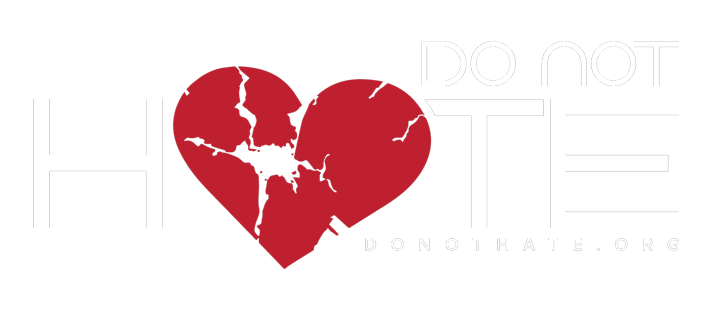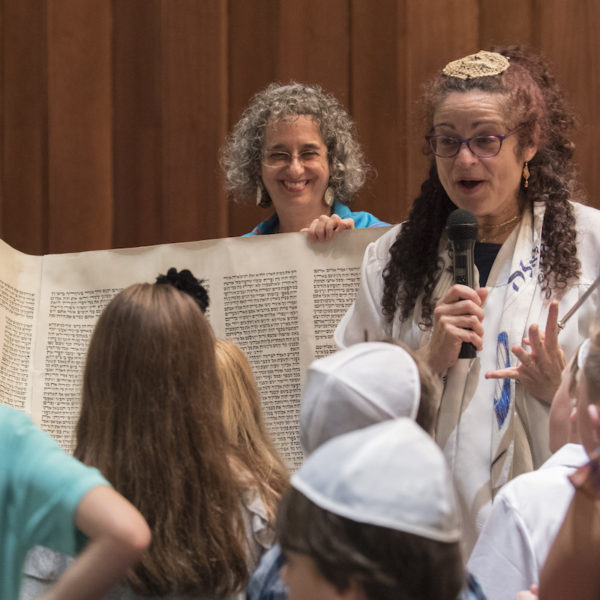DoNotHate interviewed Aaron Stark who is known with his TedX Talk “I Was Almost a School Shooter” which is viewed more than 7 million times. After Parkland School Shooting, he wrote a letter to one of the local news channels, telling his story. Later finding himself on the stage of TedX, Aaron Stark talked about his violent childhood, mental health struggles, access to guns in 1996 and most importantly, love which stopped him from commiting violence.
In our interview, while telling his story of overcoming hate with love, Stark expressed his thoughts about the negative impacts of bullying and xenophobia.
As DoNotHate team, we thank him from the heart for giving us this great opportunity and raising his voice to bring awareness.
Hi Aaron. I’m Tuana from DoNotHate, a non-profit organization run by and for high school students that aims to stop hate and related crimes in the United States. First of all, thank you for accepting our interview request and sharing this very private part of your life with us. It’s such an honor to meet you and listen to your experiences directly.
When I first watched your TedX Talk which has more than 6 million views, I remember how amazed I was by your courage to raise your voice to speak about one of the most controversial issues in the United States. And you did it by giving examples from your own childhood. I know after Parkland School Shooting you wrote a letter to 9 News, but how did you decide to tell your story on the TedX Platform?
I was always a fan of TedX, and I wanted to get my message out as wide as possible. One of the many people who found my story sent me the link to apply for a tedx slot, and I was very excited when I was approved.
Initially the first thing I wrote was just a simple Facebook post. I didn’t write it for any public goal, just for my wife and kids. My wife was the one who suggested I send it to 9 news.
-Bullying has numerous negative impacts on children’s development. While it can lead to depression and anxiety, it can even lead to suicide. However, you addressed one of its unnoticed possible consequences which is homicide. How much do you think abuse, bullying and social isolation play a role in transforming someone into a violent person? What is society’s responsibility, if it has any, to prevent this from happening?
I think bullying plays a huge role, but it in itself is just a symptom if an underlying issue of xenophobia. Seeing people as the “other” and somehow lesser, combined with our own insecurities are the root if all this, I think. The bullies pick on other kids because they 1. Feel insecure in themselves and 2. See the “other” as an outlet for that insecurities.
That’s all a really complicated way to say we need to see each other as people, not enemies. We need to see the humanity in the ones we think of as less than human. Ir that think if themselves that way. A lot of times a kid will have such a negative self image that they work to make the rest of the world agree with how they see themselves. I think the first and most important step is to listen. Be the one who will still be there after the chaos ends. Be the island of normal in the sea of pain they swim in.
– You grew up in an abusive environment with no love and care given and you almost made the worst decision of your life; yet, with your friend’s unconditional love and support, you built yourself a new life and became an inspiration. Now you are a 39 year old author with 4 children, 2 cats, and one dog. How did you overcome the struggles you were facing? What would you say to children who are in the same situation as you were in 1996?
It was a hard, long struggle that isn’t over yet. For me personally one of the most important parts was I went to the people that hurt me and let them know I saw the reality if what happened. Not to accuse or blame, but to acknowledge. That was a huge step for my recovery. I still struggle to this day with some of my demons of my past. But the way I look at life now is,
My past is like luggage. I can carry it around with me and it will weigh my arms down, slowing my movements and making me tired.
But I don’t have to keep carrying it. I can set the luggage down and keep going. Its still there, I can look back and see it whenever I want, I just don’t have to carry it around all day.
I tell my kids, the only way to be experienced is to experience.
-In your TedX Talk, you mentioned how useless it is to treat children at risk like a threat. Instead, you encouraged us to embrace them and said “ Love the ones you feel deserve it the least because they need it the most”. Why is this important? How did the love you received from your friend affect you at that time?
Depression often comes along with feeling like you are the outsider, like you are somehow broken or insufficient. When you also get treated like a pariah and outcast by the ones around you, it can push you even deeper into that darkness. I was in that place. I felt like a monster because I was told I was a monster. I felt like I was broken, like I was damaged so much I could never see happiness or light.
My friend Mike never treated me like that. When I would spend my day being made fun of or called worthless, I would go to hang with him and it would be totally the opposite. I would get respect. I would get the respect of being treated like an equal instead of a lesser. That saved me. It showed me there is another way to live, and that I was not broken. It saved my life.
-What changed since 1996 regarding of society’s response to bullying and the treatment of children at risk?
I don’t know if anything has changed and that’s the problem. Our kids are more connected than ever, and that means there are exponentially more ways for them to be degraded or insulted. We need to adapt with the times. We need to be more inclusive to the fringe elements of society, not to endorse any negativity but to show that even those fringe elements are really just normal people with issues just like you and me.
– How do you think youth can make an impact when it comes to improving our society as its future building stones? What is our role?
I think that is the most important part. The role of the youth is to grow. To know that those around you are growing too, and that with growth and change comes stress and pain, but that pain can be overcome. Treat those in pain with compassion and love. Sometimes that can be hard, but it is still needed.
Treat someone like a person when they don’t even feel human and you can change their whole world. We can get through this. We can and will grow and move on.
You are the future. Lead.
Last week, we had the wonderful opportunity to talk with John Rogers, an associate pastor at the First Congregational Church of Montclair. We got his take on hate and hate crime and also discussed some contemporary issues. A couple minutes into the conversation it was obvious that he was someone who is dedicated to making the world a better place and teaching the youth to be more accepting and open minded. We learned a lot from John and hope that you do too…
Last week, we had a chance to meet and interview Rabbi Meeka Simerly. She is sincere, heartfelt, and passionate. When we interviewed her, we saw a strong woman approaching life with much energy, creativity and enthusiasm; a leader without any vanity.
Rabbi/cantor Meeka Simerly is a Reform Rabbi at Temple Beth Tikvah Wayne, NJ, who is dedicated to her job. She is a woman who devoted herself to love and peace.



